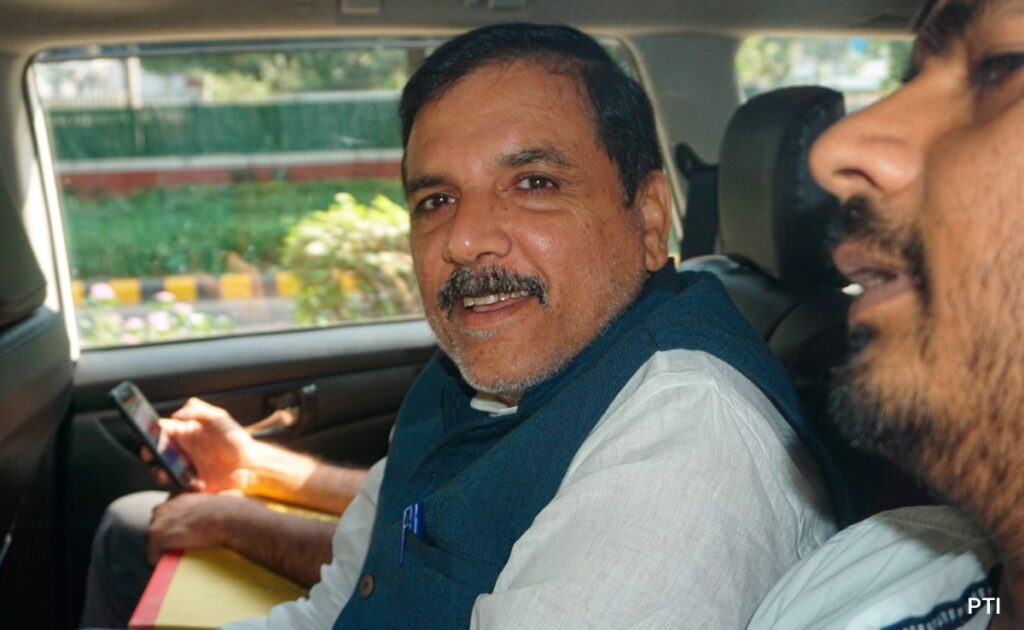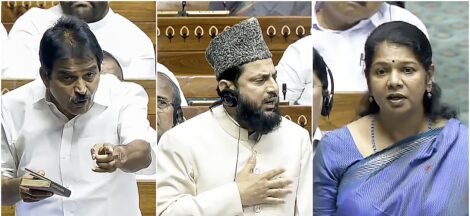Jailed Aam Aadmi Party (AAP) leader Sanjay Singh on Friday moved the Supreme Court challenging the Delhi High Court order dismissing his plea against his arrest by the Enforcement Directorate (ED) in a money laundering case related to the now-scrapped excise policy of the city government. The high court had on October 20 refused to interfere with Singh’s arrest in the case, saying it could not impute political motive to a premier investigating agency in the absence of material on record.
Singh has approached the apex court challenging the high court order through a petition filed by advocates Vivek Jain and Rajat Bhardwaj. The high court had dismissed the AAP parliamentarian’s petition challenging his arrest and remand in ED custody and said the reputation of premier investigating agency has a direct relation to the reputation of the country being a fair entity.
“This court will not insinuate at this stage or impute any political motive to the investigating agency in the absence of any material on record and does not consider it a prima facie case of no evidence at all,” the high court had said while pronouncing the verdict. “At a premature stage when the investigation is at a nascent stage, this court does not find any ground to interfere at all with order of remand or arrest. Dismissed,” the judge had ordered.
Singh, who was arrested by the ED on October 4, had moved the high court challenging his arrest and remand in the money laundering case related to alleged irregularities in the Delhi excise policy for 2021-22. He had claimed that his arrest was “illegal, malicious, and a classic case of perversion of power”. It was only based on the statement of an approver, he had said.
The ED’s money laundering case stems from the CBI FIR. According to the CBI and the ED, irregularities were committed while modifying the Delhi Excise Policy 2021-22 and undue favours were extended to licence holders.
It was alleged that Singh played a key role in the formulation and implementation of the policy, which benefited certain liquor manufacturers, wholesalers, and retailers, for monetary considerations. After his arrest, the trial court remanded Singh in the custody of the anti-money laundering agency and later, he was sent to judicial custody.




 Cong had equal role in Babri demolition: Owaisi
Cong had equal role in Babri demolition: Owaisi 